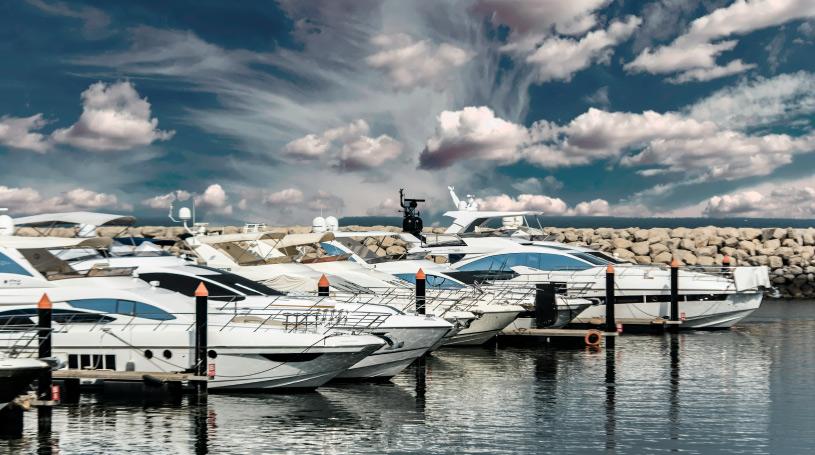This year’s boatica Cape Town Boat Show threw up some surprising business news that has gone largely unnoticed
This year’s boatica Cape Town Boat Show threw up some surprising business news that has gone largely unnoticed. The value of South African boat exports has more than doubled over the past four years to R4,9-billion. Meanwhile direct employment in the sector increased from 3700 to 4800 over just the past two years.
That’s spectacular growth even for a sector that has consistently outperformed almost every other economic sector for over a decade.
Recreational boats in particular are a massive export success story, making up 94% of total South African boat exports.
But the most remarkable aspect of the story is how the sector succeeded despite several major challenges, notably in the realm of logistics, energy, and skills development. To triumph against the odds local boat builders required a mixture of good fortune, good planning, and resilience.
Boatbuilding is a relatively small sector within the national economy but its success points to what could be achieved without impediments related to government inefficiency.
When faced with Covid-19 paralysis, boat builders united to lobby government to allow a partial return to work with strict social distancing protocols. IN this way local yards were able to cash in on the remarkable post-Covid demand for luxury boats as many buyers pursued dreams they had shelved during lockdown.
Over the years boat builders have also had to invest in alternative generation capacity – those that could afford it – due to production interruptions caused by load shedding.
The sector has also prioritised international marketing, bolstering its profile on the international stage and growing its share of the global export trade. In the absence of skills the sector has prioritised in-house training programmes. It also had to contend with trade impediments such as port delays affecting boat exports, and spiralling input costs that have impacted the wider economy.
The difference is that boat builders have managed to pull together to devise solutions to their biggest challenges. One can only imagine where the sector might be if their collective effort had been focused on growing market share, rather than crisis control.
An often overlooked ingredient of business success is institutional memory. South Africa’s long seafaring history has spawned generations of boat builders and naval architects who possess that sometimes elusive ingredient called passion. In a highly competitive world, where manufacturing success often depends on wafer-thin margins, we underestimate the advantage of quality craftsmanship dependant as much on skill as pedigree and dedication.
It is for this reason that continuity and skills training are so vitally important to our economic future, and require government’s full attention. Targeted DTIC programmes have been a huge help, but more help is required. Accelerating economic reforms will not only allow existing businesses to grow, they will help germinate the success stories of tomorrow.
Boatbuilding success shows how growth is achieved by nurturing entrepreneurial spirit and expertise, not propping up moribund state-owned enterprises that drive up input costs such as water and electricity.
We do not have the luxury of time to keep relearning the same lessons.
Our boatbuilding triumph could be a springboard to an even more inclusive story on an incoming tide of economic success.

